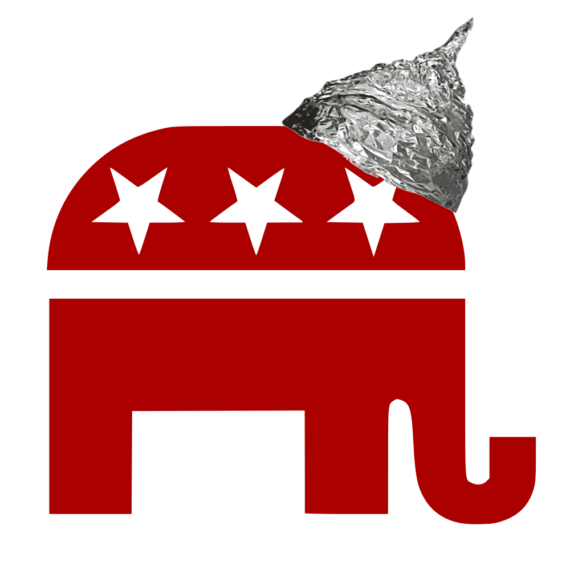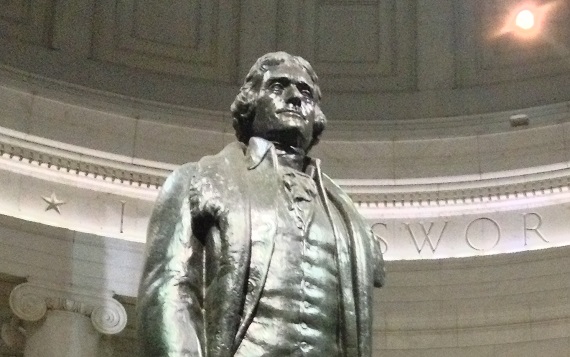As readers of this column well know, I have never really trusted the Republican Party. Even in 1962, when I first worked actively for a Republican candidate (the late Bill Workman), I saw the arrogance of the Party leadership—its love of money and power, its fine contempt for grassroots beliefs and sensibilities. Over the years I have come to understand that those who run the GOP would rather control the party machinery than win elections. In campaign after campaign, fellow Republicans rather than liberal Democrats have provided the most formidable obstacles to conservative victories.
In 1962, it was the country-club crowd in South Carolina. They wanted seats at the 1964 National Convention and thus were unwilling to bring new activists into the Party, for fear they would want to hang around after the election. In 1980, it was the Texas Republican establishment sulking over Ronald Reagan’s primary defeat of George Bush that dragged its feet during the general election and then used its connections with James Baker III to block the appointment of Reagan’s supporters to government posts. In 1986, it was Haley Barbour’s office in the Reagan White House that withheld crucial support from Republican Larry Cobb in his attempt to unseat veteran New Dealer Jamie Whitten.
In those days, with Ronald Reagan leading the conservative wing of the Party, there was good reason to support the Republican cause, despite its often devious and unprincipled leadership. Today there is almost no reason to be a Republican. The Party is once again completely in the hands of the big-money crowd. They are increasingly arrogant in dealing with their recent historical constituency—middle-income, God-fearing family folks. For years GOP big-wigs have swaggered around Washington, dismissing the legitimate petitions of these good people, laughing at their naivete, saying to one another, “We don’t have to give them anything. They’ve got no other place to go.” And when candidates rise up to speak for this forlorn constituency—which gave George Bush the bulk of his support in 1988—the Republican hierarchy calls them extremists and says they are outside the Party’s mainstream. In this fashion they dismissed Pat Buchanan in 1992 and even blamed him for Bush’s defeat, despite the fact that Christian evangelicals deserted the Party in huge numbers because they didn’t hear enough of the rhetoric Buchanan was using.
The problem with Republican leaders is easy to define: They don’t believe in anything—except economic cliches. Though Ronald Reagan used to address social concerns in his speeches (if not in his legislative initiatives), the current Republican leadership in Congress seems embarrassed by issues like gay rights, abortion, pornography, and prayer in schools. While the Democratic Party is leading a frontal attack on traditional American values, the Republican leadership is orchestrating a polite and orderly retreat.
• Republican senators like Orrin Hatch have failed to oppose most radical cabinet and sub-cabinet appointments in the nation’s history—lesbian activists, advocates of drug legalization, proponents of federally funded abortion, purveyors of condoms to small children, and defenders of child pornographers.
• Sam Nunn, a Democrat, led a compromised Congressional defense on the ban on homosexuals in the military—a ban widely supported by the American people. When Dan Coats and a couple of Republican conservatives tried to take a harder line, Minority Leader Bob Dole stepped in and assumed control of the issue. The result was a sell-out that, in effect, allows homosexuals to serve in our Armed Forces.
• Haley Barbour, the Party’s national chairman, announced that the homosexual Log Cabin Clubs would be welcome in the Republican Party.
• Ralph Reed, who heads Pat Robertson’s Christian Coalition, is now saying that the Religious Right should quit emphasizing social issues and spend more time on mainstream economic issues—issues that all Republicans can support.
• Even Congressman Dick Armey, in a recent issue of Policy Review, tried to prove that traditional conservatives and big-money Republicans really agree on the basics— that “freedom” is the most important principle uniting the Party, as opposed to conventional morality and traditional strictures on illicit sexual conduct, pornography, and abortion.
Republican leaders are determined that by 1996,the so-called Religious Right will be tamed or exorcized. Then the Party will be pared down to a lean army of defiant materialists, who will do battle against Bill Clinton and the Democrats flying the banner of “entrepreneurial capitalism.” This strategy is based on the presumption that by the time the next presidential election rolls around, the economy will be in terrible shape and Dole will pirouette into the White House singing the praises of the Laffer Curve.
Of course, if the economy continues to prosper—and it’s doing pretty well right now there’s always the year 2000. As for any Republican who wants to run on a platform calling for the restoration of policies that promote traditional values, the Party is quick to pile on such a candidate and pummel him with fists and stout cudgels.
• In the 1993 state elections in Virginia, Mike Farris—the conservative, pro-life candidate for lieutenant governor—was given the cold-shoulder by Party regulars, who, on election eve, were making precinct calls in behalf of the candidates for governor and attorney general but failing to mention Farris—and still Farris came close to defeating a popular Democratic incumbent.
The trend continues in 1994. Thus in Virginia we see a Republican-engineered “Campaign to Defeat Oliver North.” Its chief spokesman — Wood Holton, son of a former Republican governor who says he and his group are Republicans as well. It is significant that the Holton campaign is directed against North rather than for his primary opponent, Jim Miller.
The Republican leadership is playing a dangerous game, particularly in the South, which has never really embraced the Party, even when voting for its candidates at the national and state level. Bill Clinton carried some key Southern states—not because of what he stood for but what the Republicans didn’t stand for. Now Clinton has slipped around to the right of the Republicans on welfare reform, and he and Hillary are even referring to “morality” and “family values” in some of their public statements.
Meanwhile Southern conservatives are increasingly disturbed with the drift of the nation. Some sensible folks are privately talking about secession and revolution. It’s just talk, of course, but another alternative they frequently mention is more viable: a conservative third party. The Republican leadership is currently down on its knees begging for such a movement, one that will field and alternative candidate in 1996—somebody more principled than Bill Clinton or Bob Dole or, for that matter, Ross Perot.
This time they may just get their wish.
This essay was originally printed in Southern Partisan magazine, 4th Quarter, 1993.







